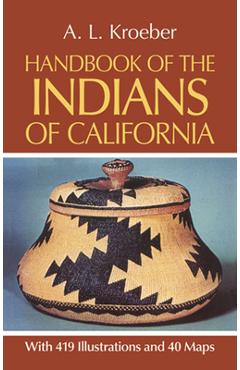Culture: A Critical Review of Concepts and Definitions - The History of Human Culture, its Role in Social Sciences - A. L. Kroeber

Detalii Culture: A Critical Review of
libris.ro
104.01 Lei
115.57 Lei
Social Science
A. L. Kroeber
Culture: A Critical Review of - Disponibil la libris.ro
Pe YEO găsești Culture: A Critical Review of de la A. L. Kroeber, în categoria Social Science.
Indiferent de nevoile tale, Culture: A Critical Review of Concepts and Definitions - The History of Human Culture, its Role in Social Sciences - A. L. Kroeber din categoria Social Science îți poate aduce un echilibru perfect între calitate și preț, cu avantaje practice și moderne.
Preț: 104.01 Lei
Caracteristicile produsului Culture: A Critical Review of
- Brand: A. L. Kroeber
- Categoria: Social Science
- Magazin: libris.ro
- Ultima actualizare: 07-03-2025 01:38:19
Comandă Culture: A Critical Review of Online, Simplu și Rapid
Prin intermediul platformei YEO, poți comanda Culture: A Critical Review of de la libris.ro rapid și în siguranță. Bucură-te de o experiență de cumpărături online optimizată și descoperă cele mai bune oferte actualizate constant.
Descriere magazin:
Alfred Louis Kroeber offers an all-embracing account of human culture, looking at its historical definitions, contemporary definitions, and its role as a foundation for all of the social sciences. A work striking for its thoroughness, Culture: A Critical Review begins by examining the origins of the term Culture, and how it came to be associated with civilization and social change. The appearance of the word in intellectual writings, such as those of Kant and Hegel, increased through the 19 th century. Interpretations of the word - as the later section on definitions shows - persisted in varying widely, with scholars differing in what they consider part of a given country\'s culture. Some constructed strict definitions involving things like a country\'s symbols, morality, festivals, and heritage while others opted to apply the term more generally or loosely. This conceptual problem serves as an overarching theme, its difficulty apparent in the many contrasting views the author quotes. Nevertheless by listing and commenting on these numerous ideas, Kroeber demonstrates culture\'s broadness; its influence ranging into disciplines such as psychology, history, linguistics, medicine and sociology. The author himself considers this study as anthropology; a tracing of how culture emerged from occasional academic mentions and allusions into a dominant cluster of ideas, transcending many disciplines and assuming place in popular consciousness.

Produse asemănătoare

Moral Agency within Social Structures and Culture. A Primer on Critical Realism for Christian Ethics, Paperback/***
![]() elefant.ro
elefant.ro
Actualizat in 04/05/2025
200.99 Lei

Popular Culture in Everyday Life. A Critical Introduction, Paperback/Christina R. Foust
![]() elefant.ro
elefant.ro
Actualizat in 04/05/2025
357.99 Lei

Journalism, Culture and Society. A Critical Theoretical Approach to Global Journalistic Practice, Paperback/Omega Douglas
![]() elefant.ro
elefant.ro
Actualizat in 04/05/2025
299.99 Lei

Cancel Culture. A Critical Analysis, 1st ed. 2022, Paperback/Eve Ng
![]() elefant.ro
elefant.ro
Actualizat in 04/05/2025
277.99 Lei

Power, Media, Culture. A Critical View from the Political Economy of Communication, Hardback/Luis Albornoz
![]() elefant.ro
elefant.ro
Actualizat in 04/05/2025
772.99 Lei

Culture: A Critical Review of Concepts and Definitions - The History of Human Culture, its Role in Social Sciences - A. L. Kroeber
![]() libris.ro
libris.ro
Actualizat in 07/03/2025
104.01 Lei
Produse marca A. L. Kroeber

Culture: A Critical Review of Concepts and Definitions - The History of Human Culture, its Role in Social Sciences - A. L. Kroeber
![]() libris.ro
libris.ro
Actualizat in 07/03/2025
104.01 Lei
